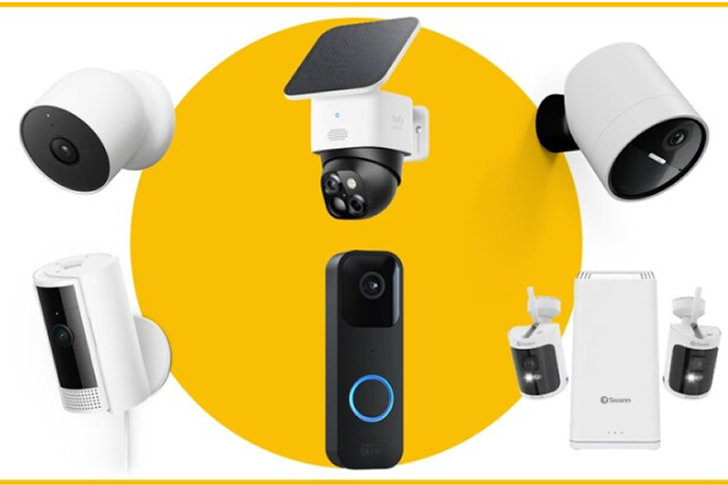Reliable Professional Security Cameras with High Quality
In today’s technologically driven world, security is a paramount concern for businesses and homeowners alike. Reliable professional security cameras not only protect against theft and intrusion but also provide valuable data and peace of mind. High-quality security cameras can make a significant difference in ensuring safety and security. This article delves into the essentials of reliable, professional security cameras, showcasing the features that define high-quality systems, and illuminating the technological advancements that have reshaped the industry.

The Importance of High-Quality Video Resolution
One of the most critical features of any security camera is video resolution. High-resolution cameras can capture clearer images, making it easier to identify individuals, license plates, and other critical details. As of 2023, the standard for high-quality security is at least 1080p, though many organizations are opting for 4K resolution. For example, 4K cameras provide a resolution of 3840 x 2160 pixels, offering four times the number of pixels as 1080p. This higher pixel count significantly enhances the clarity of the video, making it ideal for areas requiring detailed surveillance.
Advanced Features in Modern Security Cameras
Today’s top-tier security cameras are equipped with a range of advanced features that enhance their efficacy. Features such as night vision using infrared LEDs allow for clear video in low-light conditions, crucial for round-the-clock surveillance. Moreover, cameras equipped with motion sensors can conserve storage space and reduce operational costs by recording only when they detect movement. Additionally, Pan-Tilt-Zoom (PTZ) functionality allows cameras to cover larger areas, providing comprehensive coverage with fewer devices.
Another significant advancement is the integration of Artificial Intelligence (AI). AI-enabled cameras can differentiate between humans, vehicles, and animals, reducing false alarms often triggered by irrelevant movements. Such smart cameras enhance surveillance efficiency and accuracy, a feature supported by the growing trend of integrating security systems with home automation. According to a report by MarketsandMarkets, the global AI-powered video analytics market is expected to grow from $4.9 billion in 2021 to $11.7 billion by 2026, demonstrating the increasing reliance on intelligent surveillance solutions.
Reliability and Durability
Reliability is crucial for security cameras to ensure consistent operation. High-quality cameras are designed to function in a variety of environmental conditions. This includes operating in extreme temperatures, being waterproof and vandal-resistant, and providing stable performance despite power fluctuations. Moreover, the reliability of security cameras often hinges on their connectivity options; Ethernet connections are preferred over Wi-Fi in professional settings due to their stability and security. The durability of these cameras is usually denoted by their IP (Ingress Protection) rating, which indicates their level of resistance to solids and liquids. An IP rating of IP67, for instance, means the camera is dust-tight and can withstand temporary immersion in water.
Data Storage and Security
Another pivotal aspect is how surveillance footage is stored and secured. Modern security cameras offer both on-site and cloud-based storage options. On-site storage typically involves digital video recorders (DVR) or network video recorders (NVR), whereas cloud storage allows footage to be securely stored on remote servers. The latter has gained popularity due to its scalability, ease of access, and robust data protection measures. It’s essential that the storage solution provided is not only expansive but also compliant with data protection regulations like the General Data Protection Regulation (GDPR), ensuring that all recorded video meets legal standards for privacy and security.
Implementation and Maintenance
When selecting a professional security camera system, considerations extend beyond just purchasing. The implementation involves a strategic placement of cameras to cover key areas, professional installation to ensure optimal operation, and regular maintenance. Scheduled maintenance should be conducted to confirm that all components of the system are functioning correctly and to preemptively address any potential issues. This proactive approach can greatly extend the lifespan of security equipment and enhance overall system reliability.
Conclusion
Selecting the right professional security camera system involves careful consideration of several factors including video quality, advanced features, reliability, storage, and maintenance. By focusing on high-quality products and proper implementation, businesses and homeowners can significantly enhance their security posture. As technology continues to evolve, so too will the capabilities of these systems, further enhancing their effectiveness in protecting people and property.
This comprehensive examination underscores the importance of investing in high-quality and reliable security cameras. In doing so, users not only safeguard their premises but also gain access to cutting-edge features that push the boundaries of what traditional security systems can achieve.







Recent Comments